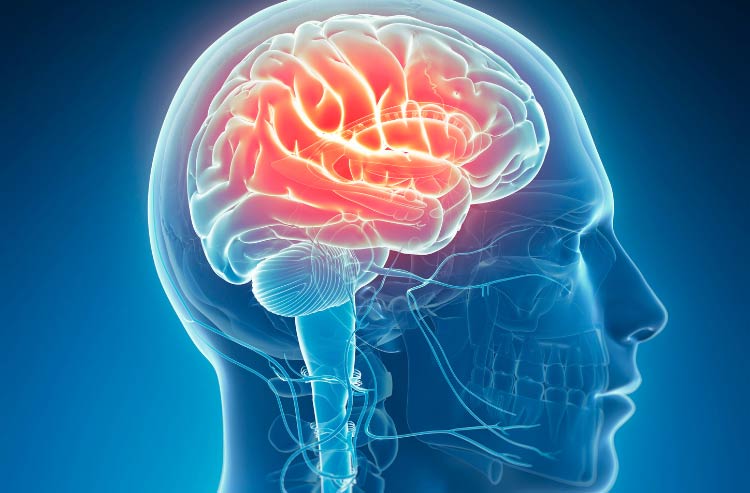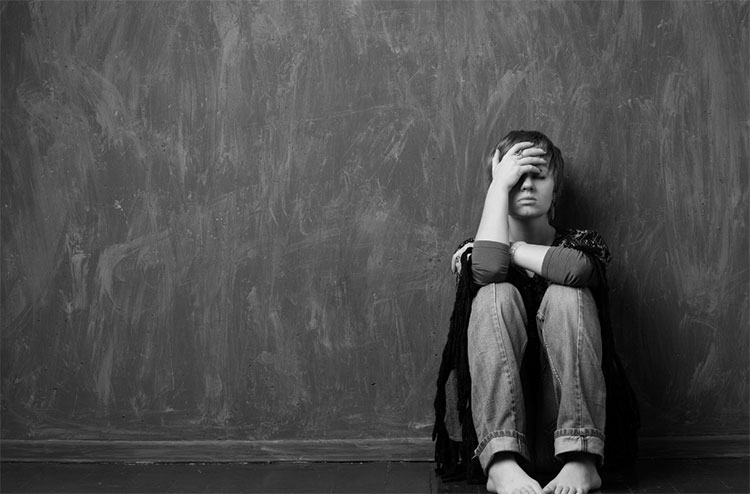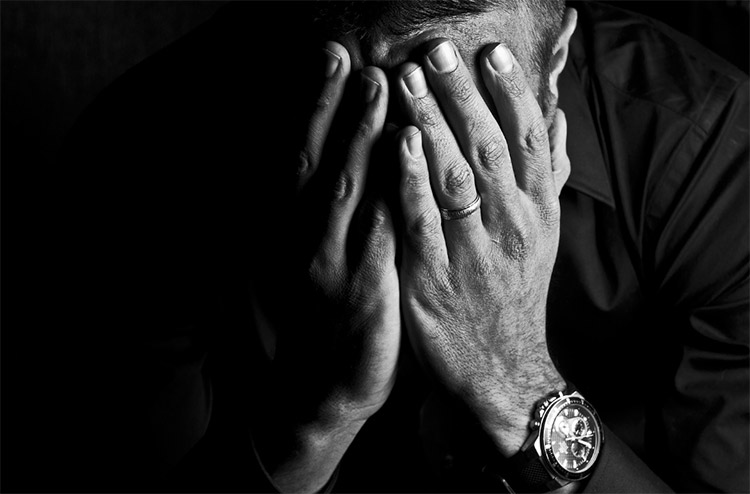Introduction
Overview of Grief and Bereavement
Grief and mental health are closely connected. Grief is a normal reaction, to losing someone who is important in your life. It always involves mixed emotions like sadness, anger, confusion, and relief. Bereavement is the period during which you experience these emotions, and start to adapt to life without your loved one. During this time you will find your emotions unpredictable and you might struggle to do your responsibilities in life.
Grief is a personal experience and it varies from person to person. Some people are comfortable in talking about their loss, but others find it hard to express their true feelings. Grieving doesn’t occur in an orderly sequence, it can involve moving through different stages of grief such as denial, anger, bargaining, depression, and acceptance. The order of these stages of grief can be different from person to person.
The Prevalence and Impact of Unexpected Deaths
Let’s talk about the prevalence and impact of unexpected deaths, when someone dies suddenly without a warning, sometimes due to accidents, sudden illnesses, or other unforeseen events. These unexpected deaths are very difficult to cope with because your mind is not prepared. The shock of unexpected death can amplify the feelings of grief and make the processing of emotions difficult.
Unexpected deaths happen more often than we think. For example, according to studies nearly 10% of all deaths in developed countries are unexpected. The causes of these unexpected deaths are mostly accidents, heart attacks, or strokes. The sudden deaths can significantly impact your emotional and psychological well-being and often result in intense feelings of loss and confusion.
The Neurobiology of Grief

Brain Change During Grief
When you are grieving, your brain changes in a way that impact your thoughts and emotions. Studies show that the particular areas of the brain which process emotions and memories, like the amygdala and hippocampus, become more active during grief. These changes can make your feelings more intense and lead you to withdraw, always bringing back memories of your loss and deepening your longing for the person who passed away.
The prefrontal cortex which is responsible for decision-making and impulse control may also be affected during grief. As a result, it can lead to problems in concentrating, making decisions, and remembering things. Simple tasks might seem difficult, and you might struggle to stay focused on work or other duties.
Stress Response and Cortisol
Grief can activate your body’s stress response as a result of which the body can release the hormone called cortisol. Cortisol plays a crucial role in regulating your body’s response, but high levels of cortisol due to prolonged stress can have negative effects.
High levels of cortisol can increase the feeling of anxiety or depression making it difficult to cope with grief. It can also disturb the natural Sleep-wake cycle, leading to insomnia or excessive sleep. Additionally increased cortisol levels can weaken your immune system, making it easier for you to catch illnesses.
Understanding cortisol’s role in grief can help you notice how your emotions affect your body. Managing stress with deep breathing, exercise, and mindfulness can lower cortisol level in your body and enhance your overall health.
Disruption of Sleep and Appetite
Many individuals experience disruption of sleep and appetite during grieving. This can affect your health and overall well-being. Some may find themselves sleeping more than usual using it as a way to cope with reality and their emotions.
Additionally, appetite changes are common during grief. Some may lose their appetite, while others may eat more to find comfort. These changes are normal in our system, and everyone can experience them. It’s important to pay attention to these changes and maintain a healthy lifestyle, as they can impact both grief and mental health. Eating nutritious foods, staying hydrated, and getting enough sleep can help you manage your emotions during grief.
Common Psychiatric Disorders Associated with Grief

Depression
Grief and depression might seem alike but they are not the same. Grief is the natural response in times of loss, whereas depression is a medical condition that may affect your thoughts, mood, and behavior. If grief lasts too long or you’ve had mental health problems before, the sadness associated with grief can turn into depression.
The symptoms of depression may include feeling sad all the time, feeling hopeless, lack of interest in your favorite activities, change in appetite and sleep, and having trouble in focusing. If you find that these feelings are disturbing your daily life, you should seek help from a mental health professional.
Anxiety Disorders
Losing someone can make you constantly think about the future or fear more losses, which can cause more anxiety and worry. This increased anxiety is a common response to grief but it can become overwhelming and make it hard to cope.
The symptoms of anxiety may include restlessness, irritability, stiffness of muscles and lack of sleep. You may also have panic attacks, in which you can feel a racing heart, shortness of breath, and dizziness.
Managing your anxiety during grief is very important for your mental health. Techniques like deep breathing, meditation, and exercise can give you relaxation and reduce the anxiety. Seeking therapy can also help heal and learn how to cope.
PTSD and Trauma from Unexpected Loss
Sudden loss may be traumatic and may lead to a mental health condition called “Post-Traumatic Stress Disorder (PTSD)”. If you have PTSD during the grieving period, you might have sudden and intense thoughts or memories of the death that feel very real.
These intense thoughts can be very disturbing and make it difficult for you to focus on anything else. You may start avoiding certain places or people that remind you of your loved one. This can make it harder to deal with your grief.
Dealing with PTSD is very important to manage your symptoms of grief and learn how to cope with the trauma. The trauma-focused therapy can help you process what happened and find ways to manage troubling thoughts.
Substance Use Disorders
Some people choose to drink alcohol or drugs to escape the emotions they feel. Self-treatment can temporarily suppress your emotional pain, but it can lead to addiction. The risk of substance use disorder is higher if you have a history of substance abuse or your support system is limited.
The common way people choose to cope with the grief is by using alcohol or drugs, but this can make depression and anxiety worse. Even though these substances might offer temporary relief, they can damage your mental and physical health in the long run.
Grief and Mental Health Across All Stages of Life

Impact on Children and Adolescents
Children and teenagers process grief differently than adults. They might not know how to talk about their feelings. They can show their grief by changing their behaviour, mood or school performance. Younger children might revert to their earlier behaviour like bed-wetting while teens may become quite or act out.
It is important to provide them with support according to their age. Encourage them to talk about their feelings and let them know that it’s normal to feel sad and angry. Creating a supporting environment can help them cope and grow stronger.
Effects on Adults
Adults have to manage many responsibilities while grieving, like work and family duties. This can increase stress levels and hard to find time in moving on to process the loss. The demands of daily life can also make it difficult to focus on self-care and emotional healing.
Grieving adults experience mixed of emotions like sadness, anger, guilt and confusion. They may also think, and struggle about their purpose in life, especially after losing a spouse or parent. It is important for adults to take care of themselves and ask for support from friends, family and mental health professionals.
Consequences for Older Adults
Older adults can face extra challenges when grieving like losing a lifelong partner or experiencing several losses in short time. This can make them feel lonely and more vulnerable to the health problems. They may also have their own health and mobility issues due to which they can find difficulties in socializing and seeking help.
Contributing Factors to Complicated Grief

Understanding Acute and Prolonged Grief Reactions
Grief is the normal reaction when you lose someone and most people experience “acute grief”. This type of grief is very strong in the beginning with the feelings of sadness, anger, and longing. You may also have physical symptoms like fatigue and loss of appetite. But over time these feelings usually become less intense and you start to adjust to life without your loved one.
The “prolonged grief disorder” is a type of “complicated grief”. This is when the sadness and longing don’t get better over time and stay very strong. In complicated grief you may find it hard to accept the loss, feel numb or disconnected from others and struggle to find meaning in life. It is important to recognize the signs of complicated grief and seek professional help for the recovery.
Discover the different types of grief and explore coping strategies.
Sudden or Violent Death
Coping can be much more difficult if the death is sudden or violent. The unexpected loss might leave you angry or thinking that things are unfair, making it harder to handle your emotions and move on. The shock of sudden or violent death may also cause feelings of disbelief and confusion. You may find it difficult to process what happened. Talking to friends, family, or a professional counselor can help you work through your feelings and begin to heal.
Close Relationship to the Deceased
If you are very close to the person who died, the loss may feel more intense. You might find it hard to imagine life without them. You can also have a feeling of guilt or regret if there are things left unsaid or there are some unresolved issues. Processing these feelings through therapy, writing or self-reflection is important for healing.
Lack of Social Support
During the grieving process having your family and friends around is really important. It gives you comfort during the tough times. The support not only offers practical help but also makes you feel connected. If support from family and friends is not available, connecting with community groups, support networks, or mental health experts can help manage your grief and move forward.
History of Mental Illness
If you have experienced mental health issues, you have more chances to deal with complicated grief. Conditions like depression, anxiety or PTSD can make it more difficult to cope with loss and increase the risk of developing prolonged or complicated grief. It is important to be aware of your mental condition and seek help if needed. A mental health professional can guide you and suggest treatment if needed.
Managing Strategies and Healing Options

Grief Counseling
Grief counseling offers you a space to explore your feelings about your loss. A grief counselor guide you about the grieving process and suggest ways to cope. It allows you to express your emotions and find a path forward.
Bereavement therapy can be very useful if grief is making everyday life hard. It is more in-depth and often long-term therapeutic approach designed for people whose grief has become complicated.
Psychotherapy and Cognitive-Behavioral Therapy
Therapeutic approaches like cognitive-behavioral therapy (CBT) aim to support you in managing your thoughts and behavior through your grieving process. These therapies are very effective in reducing the symptoms of depression and anxiety.
CBT focuses on identifying negative thought patterns and behaviors and making changes in them. It gives you healthier coping mechanisms and supports your overall well-being. This type of therapy is essential in the grieving process, especially if you are dealing with complicated grief or other mental health issues.
Mindfulness-Based Interventions
Meditation, yoga or other mindful practices can help you stay present and reduce your stress level. These activities can bring calm and stability during tough times, making it easier to handle your emotions and find balance. Mindfulness can also make you more aware of your feelings which helps in processing your grief in healthy way. These activities also make you relax and help reduce anxiety or depression.
Conclusion
Grief is universal. Everyone might experience grief but it is approached everyone differently. Understanding the neurobiology of grief and its impact on your mental health supports you in the grieving process. You can also recognize the signs of complicated grief and seeking support is essential in your mourning process they will also give you a coping mechanism for you to move on from that tragedy.
Grief can affect everyone, whatever your age or background, and it is vital to give support and understanding to those who have knowledge and experience of a difficult grieving journey. Giving importance to cultural perspectives, social support, and identifying coping mechanisms can play a vital role in helping you manage the grieving process and move forward in your life.
Choosing the right support can make an important difference in your healing journey. Always keep in mind that grief is natural, it’s part of your life, and it’s very okay to seek help from others if you need it. By giving time, support, and self-compassion, you can help manage the grieving process and find strategies for your healing process and acceptance.


